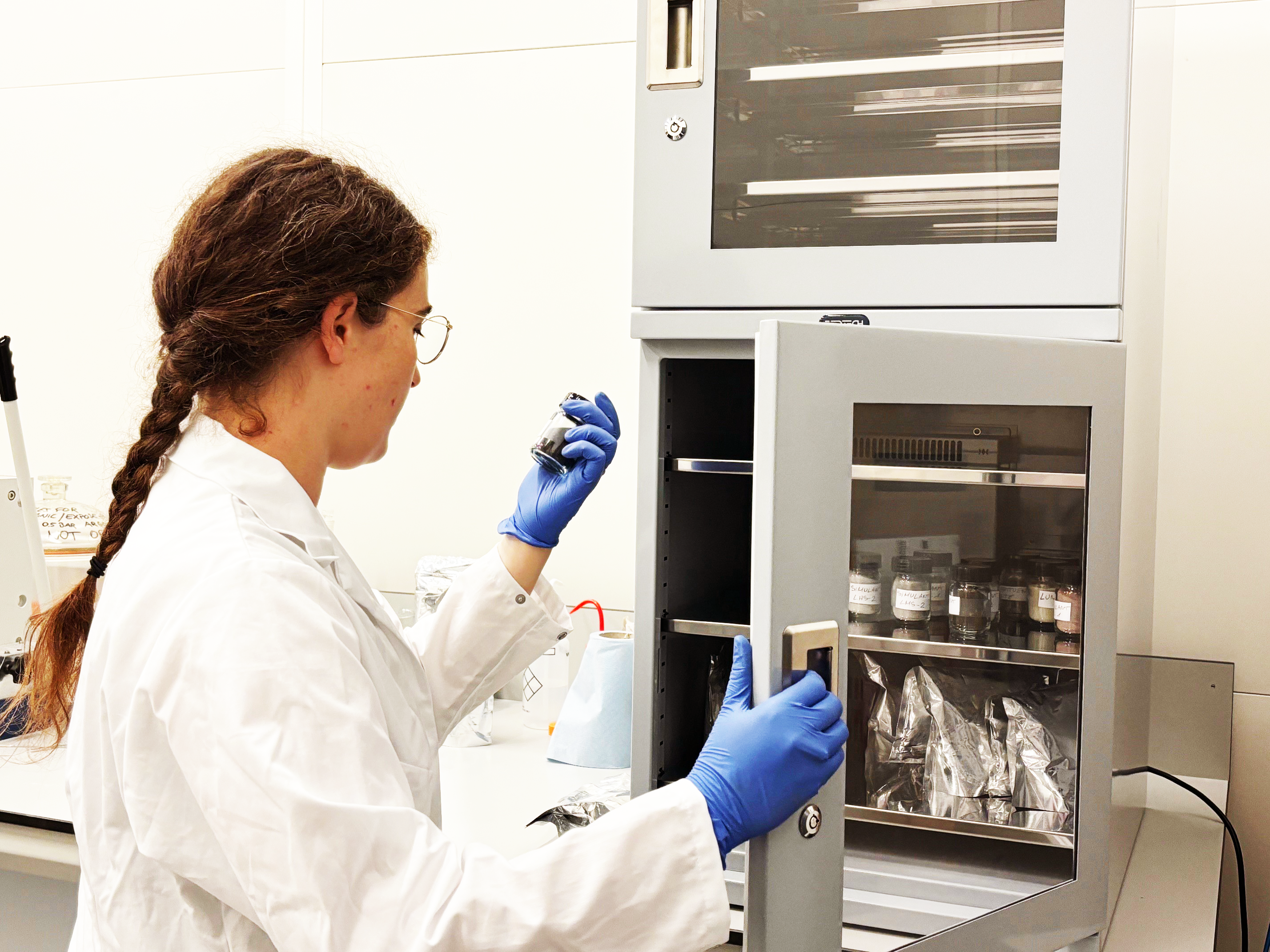Veni grant for Sandra Potin's research on light to discover life in Space
Dr Sandra Potin, space instrumentation and planetary exploration researcher at TU Delft's Faculty of Aerospace Engineering, has received a Veni grant from NWO. Potin is researching the use of light polarisation to detect, isolate and better identify carbon-based molecules, the possible building blocks of life, on the surfaces of asteroids and comets in Space. The €320.000 Veni grant will enable her to further develop her research into the so far unexplored use of ‘spectro-polarimetry’ for this purpose.
Dr Sandra Potin, Assistant Professor in the Space Engineering department at Aerospace Engineering, is one of thirteen young researchers from TU Delft who were awarded a Veni grant from the Dutch Research Council, NWO, this summer. Potin researches how ‘spectro-polarimetry’ technology can be used to detect, isolate and better identify carbon-based molecules that can be found on the surfaces of asteroids and comets in Space. Potin: “Light holds information about the surface it has been reflected on. This project uses an intrinsic property of the light, polarisation, to isolate and better identify the carbon-based molecules found on these surfaces. Using light polarisation technology for this purpose is a new and exciting field of research, where everything has to be explored.”
At the moment, the identification of organic molecules from remote-sensing data involve a lot of laboratory experiments to try and match the data obtained from the asteroids and comets. Sandra Potin: “Using the polarisation features of the organic molecules will help us better detect and identify them. We will then have more information on the chemistry occurring in space that leads to the formation of the building blocks of life in the Solar System.” Potin will use a unique lab instrument she is developing for another project to make it possible to explore the ‘spectro-polarimetric’ features over a wide range of light and lighting conditions.
The use of ‘spectro-polarimetry’ for planetary surface characterisation is a young technique with many challenges to be explored. With the Veni project Sandra Potin expects to demonstrate the technology is very well suited for the task. Potin’s research is also expected to pave the way for successful implementation on space-borne instruments on for example satellites and rovers.

